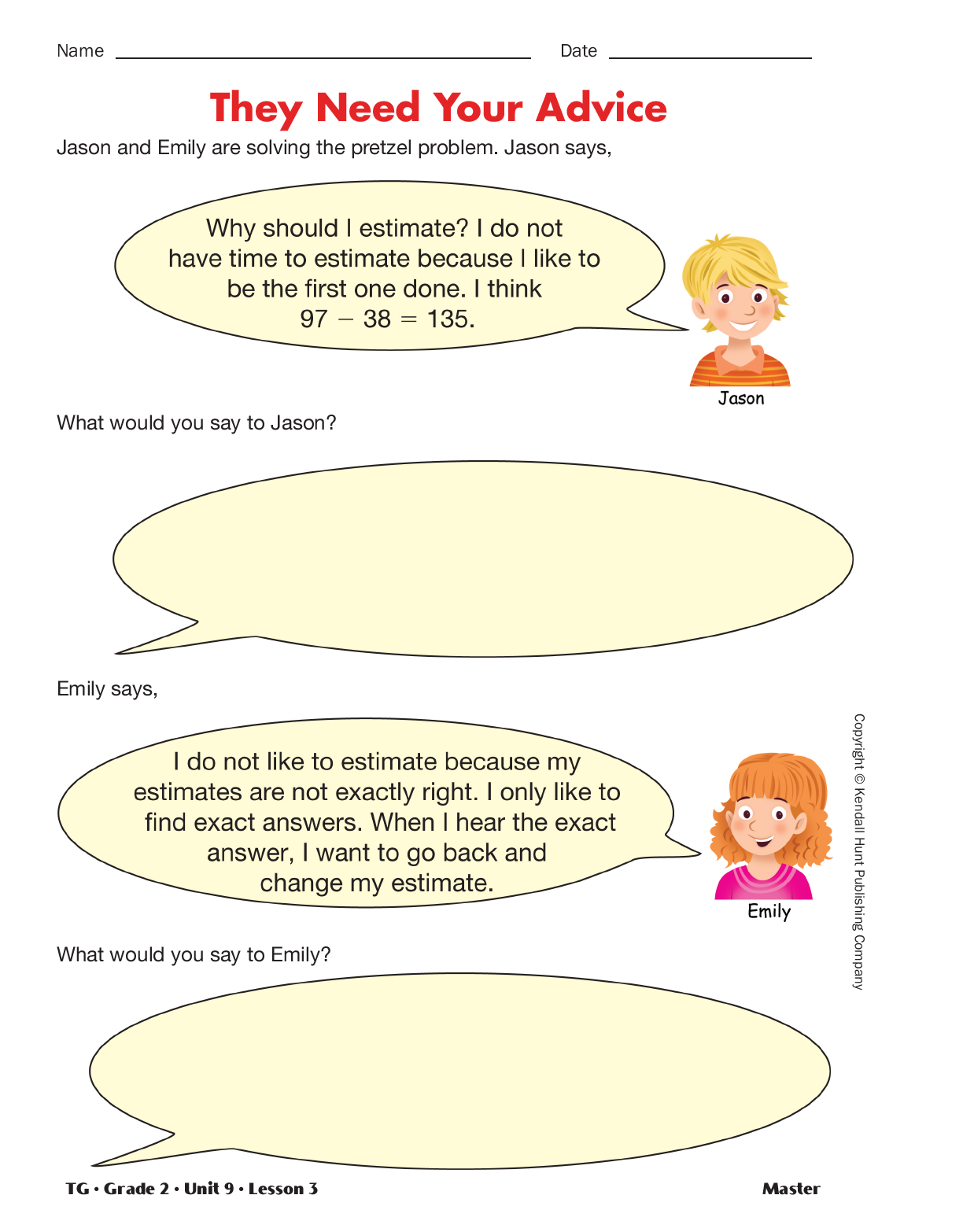Is It Reasonable
Est. Class Sessions: 1–2Summarizing the Lesson
Display the They Need Your Advice Master. Tell students that Jason and Emily solved the same pretzel problem. Read Jason and Emily’s dialogs on the Master aloud to the class. Have a discussion about what advice your students would give to these reluctant estimators. Record students’ advice in the speech bubbles. Students may suggest that Jason shouldn’t worry about being the first one done, but he should strive for a correct answer. If he would have estimated first, he might have noticed that he added the numbers in the problem instead of subtracting them, resulting in an answer that didn’t make sense. Students may advise Emily that estimates don’t have to be exactly right. They just suggest reasonable answers to problems. The best way to judge if an exact answer is reasonable is by estimating first. Sometimes an estimate is as good as, or even better, than an exact answer.
Finally, ask your students to reflect on their own thoughts about estimation.
Ask questions such as:
Conclude by stressing that estimation is an important part of math and is a very helpful skill to have in everyday life. Estimation helps when we don’t need an exact answer or when we want to check the reasonableness of an exact answer. Estimates do not need to be exactly right, but they can guide us to a correct answer.













